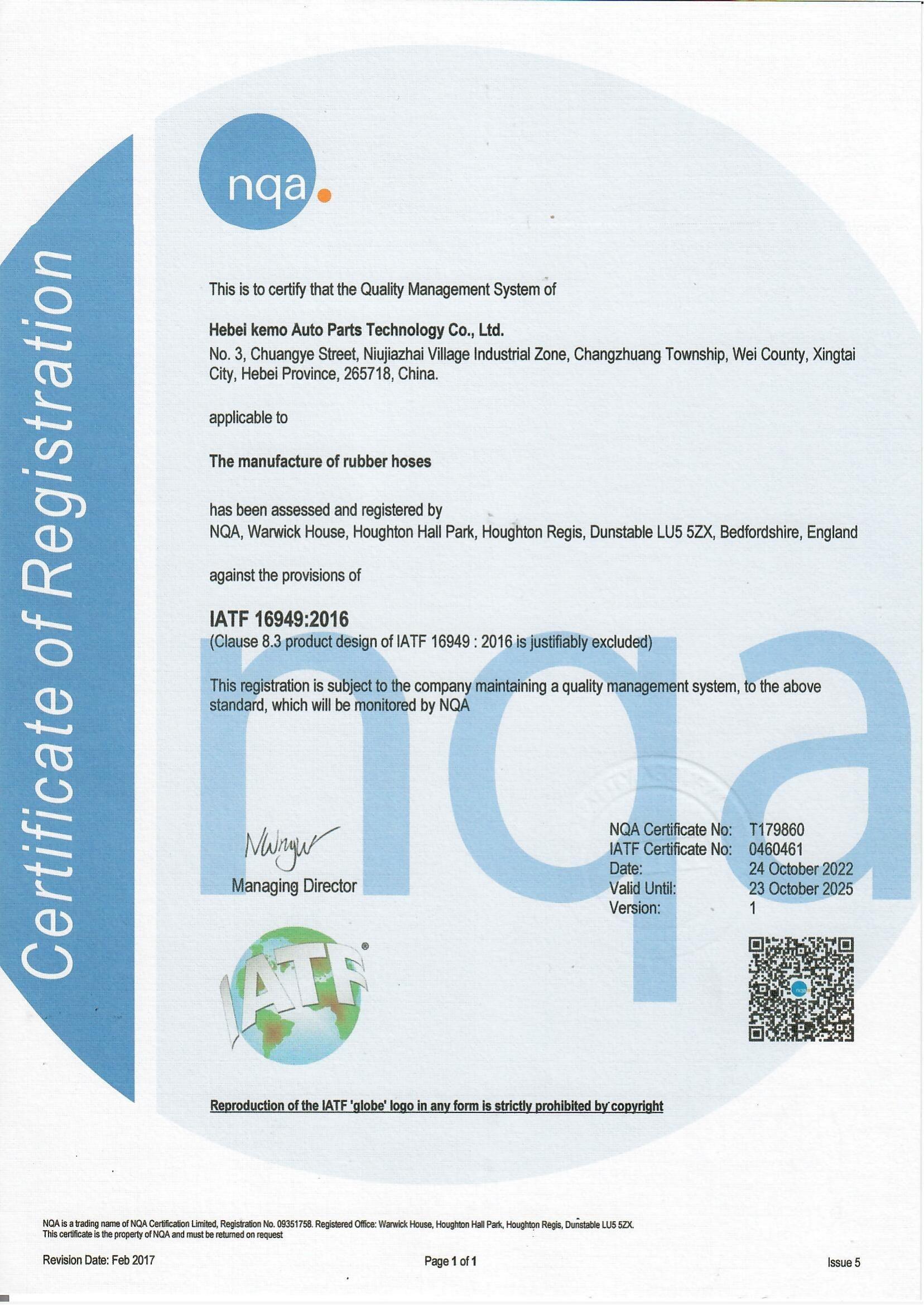car fuel lines
Nov . 24, 2024 08:46 Back to list
car fuel lines
Understanding Car Fuel Lines Importance, Maintenance, and Replacement
Car fuel lines may not be the most thrilling topic, but they play a crucial role in the overall functioning of a vehicle. These lines are responsible for transporting fuel from the tank to the engine, where it is then mixed with air and combusted to power the car. Understanding the importance of fuel lines, the necessity of their maintenance, and when to consider replacement can save drivers both money and headaches down the road.
The Role of Fuel Lines in Your Vehicle
Fuel lines are typically made from durable materials such as rubber or metal and are designed to withstand various conditions, including high pressure and temperature fluctuations. They connect the fuel tank, fuel pump, fuel filter, and the engine. If any part of this system fails, it can disrupt the fuel delivery process and lead to performance issues or complete engine failure.
A properly functioning fuel line is essential for maintaining efficient fuel flow. If the lines are clogged or damaged, the engine may not receive enough fuel, resulting in poor performance, reduced fuel efficiency, and even stalling. On the other hand, if there’s a fuel leak due to a damaged line, it poses serious safety risks, including fire hazards.
Signs of Fuel Line Issues
Car owners should be vigilant about potential signs of fuel line problems. One of the most obvious indicators is a fuel leak. If you notice any pooling liquid under your vehicle or a strong smell of gasoline, it’s time to inspect your fuel lines. Additionally, if your engine is sputtering or your car struggles to start, it may be a sign of fuel starvation caused by a blockage or leak in the lines.
Another symptom of potential fuel line issues is the presence of rust on metal lines or cracks in rubber lines. These can lead to weakening and eventual failure. Regular inspections of the fuel line system can help catch these issues early before they escalate into more serious problems.
Maintenance Tips for Fuel Lines
car fuel lines

Preventative maintenance is key to ensuring the longevity of your fuel lines. Here are some tips to keep your fuel lines in good condition
1. Regular Inspections Check the fuel lines for any signs of wear, rust, or leaks. This is especially important if your vehicle is older or has been exposed to harsh weather conditions.
2. Keep It Clean Ensure that the area around the fuel lines is clean and free from dirt or debris, which can lead to corrosion over time.
3. Professional Check-ups During regular vehicle servicing, ask your mechanic to inspect the fuel line system thoroughly. They can spot potential problems that you might overlook.
4. Fuel Quality Using high-quality fuel can reduce the risk of clogging and ensure that your fuel system runs smoothly. Poor fuel quality can lead to sediment build-up, which can impact the fuel lines.
When to Replace Fuel Lines
If you discover a significant issue during your inspection, it may be time to replace your fuel lines. If there’s a noticeable crack, leak, or severe corrosion, ignoring the problem could lead to more extensive damage and costly repairs. It's advisable to seek professional help for a replacement, as improper installation can lead to safety hazards and further mechanical issues.
In conclusion, while fuel lines may seem like an overlooked part of your vehicle, they are integral to its performance and safety. Regular maintenance, inspections, and prompt attention to potential problems can help ensure that your car runs smoothly. By staying informed and proactive about your fuel line system, you can enhance your vehicle’s performance and longevity, ensuring many more miles of safe driving.
